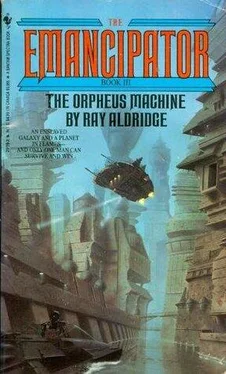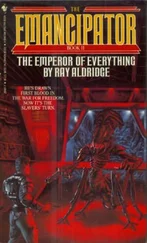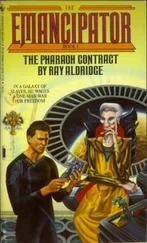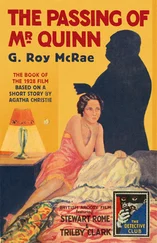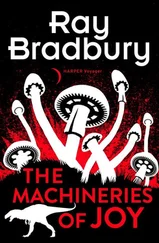“I’m sure you’re right,” he said heavily, and started to close his door.
“Wait,” she said. “We’ve decided to give you some information; we judge its effect will be motivational. The address where your darling may be found — it originates from the Yubere stronghold.”
Ruiz’s head jerked up. After a pulse of disbelief had passed through him and then evaporated, he felt a strong sudden conviction: that the story of Ruiz Aw and Nisa remained unfinished.
“Thank you,” he said, and went inside.
When he lay down, he fell into the soundest sleep he had known for weeks. If he dreamed, his dreams were the sort that ease troubled hearts.
In the morning he called Hemerthe.
When Hemerthe appeared in the datascreen, Ruiz discovered that she had changed bodies. Hemerthe was now a short broad man with large square teeth, a swarthy face, and ruby earclips. He wore his gray hair in alternating spikes and sausage curls. It was a remarkably unflattering style; it made Hemerthe’s head resemble some sort of odd sea creature.
“What do you think of my new body?” asked Hemerthe in a deep gravelly voice.
No diplomatic remark came to mind, so Ruiz confined his response to a careful nod.
Apparently his amusement was visible, because Hemerthe scowled. “Life goes on, slayer. We have a saying in Deepheart: ‘The body is a play; the mind an actor.’ A great actor can bring beauty to the most ordinary drama.”
“I’m sure that’s true,” Ruiz said in placating tones. It occurred to him that as much as the denizens of Deepheart took pride in the mastery with which they moved from body to body, the bodies still exerted some influence on the minds that rode them. This Hemerthe seemed noticeably more aggressive than the Hemerthe who had inhabited the slender woman.
Hemerthe shrugged his heavy shoulders. “It is. And now, what do you need?”
“A selection of paints — suitable for redecorating my Deltan armor.”
“We can find you better armor.”
“I’m sure — but I plan to pose as a deserter from Castle Delt.”
“Oh,” said Hemerthe.
Hemerthe brought him the paints a few minutes later. He seemed to have gotten over his pique. “These should bond to the monomol without difficulty. I have brushes, aerosols, a color wand. Which will you use?”
Ruiz picked up a brush. “This will do.”
“May I watch?” asked Hemerthe.
“Why not?” Ruiz said.
Ruiz claimed no great skill as an artist, but in this case a crude design would suffice. He’d already laid out the dull black-and-green-striped armor on the floor, latched together into a hollow man.
He cast his thoughts back over the years and remembered a world he’d fought on, long ago. The slaveholders there had invested all their wealth in the latest killmechs, rather than in living soldiers. Ruiz’s emancipators had defeated them easily, by retreating into muddy swamps where humans could survive and machines could not. Still, the first time Ruiz had seen one charging toward him across a green swale, he had been frightened into witlessness. At least part of that terror had arisen from the hideous armored Death painted on the huge chassis.
He picked up the helmet and turned it in his hands. He dipped his brush into a container of white paint and began.
An hour later he was done, and the armor carried, superimposed on its smoothly functional monomol panels, a crude depiction of ancient plate armor, the sort of cumbersome armor worn only on worlds so primitive that they had yet to reinvent gunpowder — armor encrusted with useless spikes and fins and knobs. Jagged holes gaped here and there, through which imaginary bone showed: a shattered femur, a few ribs, the articulation of a shoulder. On the helmet Ruiz had painted tattered plumes above a grinning skull.
“Not bad,” said Hemerthe judiciously, turning his head this way and that as he examined Ruiz’s efforts. “Vigorous and direct. I’ll abandon my plans to teach you to make porcelains. You show promise as a painter.”
Ruiz laughed. “Your way of life breeds tolerance in abundance.”
“True. Well, what else do you need?”
“Perhaps a skinmask. If the Lords are after me, I’d better not look like myself.”
“Who would you like to resemble?”
“I don’t know. What about you?”
Hemerthe laughed. “You’re a diplomat. By the way, we’ve chosen a person to sit at the other end of your camera link. We asked for volunteers. Only one seemed suitable. You know her.”
“Oh, no.”
“You object?”
Ruiz shook his head, finally. “No,” he said. As he spoke, he felt both the foolishness and the inevitability of the decision.
Before he left, Hemerthe seemed to struggle with himself before deciding to speak. “I must ask you, Ruiz. Why did you not arrange for your clone to have the advantage of a camera and an observer?”
Ruiz felt an irresistible impulse toward honesty, which for some reason he was unable to resist. “I’m not sure… unless it’s that I cannot entirely trust him, and so I must have an edge. ‘An edge’—the phrase sums up my philosophy, doesn’t it? You may so equip him, if you think my judgment is flawed.”
But Hemerthe only shook his head, a gesture Ruiz was unable to identify. Was it disapproval or pity? Or both?
“You are in charge,” said Hemerthe. “However, I must report a disappointment: the armor you requested for your descent into the Gencha enclave is unavailable. Armor equipped with the sort of atmosphere regeneration tech you described is apparently not used on Sook. The best we could do was to install carbon scrubbers and an external oxygen tank into a conventional urban warfare suit. You’ll have about three hours of clean air. Will that do?”
“I suppose it must,” said Ruiz.
Before he left Deepheart, Ruiz Aw conferred again with his clone.
“What information will you seek, and how will you go about it?” asked Junior in pedantic tones.
“What do you advise?” asked Ruiz, strangely amused.
Junior smiled ruefully. “Have you noticed? This is like an interior monologue in a bad holodrama. Remember when we fought the campaign on Gwalior? The clone squads they sent against us in the high desert that winter? All the jokes we made about them?” He laughed. “Is this justice?”
“Probably,” said Ruiz. “I’m beginning to believe that — if you live long enough — the universe will get even with you for every deed you do. That’s a frightening thought, isn’t it? For us, especially. Anyway… I’m going back to the Spindinny.”
Junior frowned. “I wonder if it still exists. Do you suppose there are any uncontracted fighters left in SeaStack?”
“I don’t know…. Do you have a better approach?”
“Hmm…” Junior rubbed his chin thoughtfully. “It’s difficult even to attempt the exercise. I can’t help thinking that if I could come up with anything, you would have done so already. It takes the edge off my speculations…. Well, if you find anyone alive in the Spindinny, I guess you plan to ask about work, and where the loot lies thickest.”
“Yes. Maybe I can find out if Yubere’s stronghold still holds out, and if the fighting has descended to the level of our ingress. Without being too conspicuous in my curiosity.”
“And if there’s no one there?”
“I have a few other avenues I can explore.” Ruiz thought of all the recent associates his clone didn’t know about: Publius the monster maker and would-be Emperor of Everything, the slavekeeper Diamond Bob, his friend Albany.
On an impulse, Ruiz said to his clone, “Remember Albany Euphrates?”
Junior smiled. “Oh, sure. A pretty good man, for a slayer.”
“He’s dead.”
Читать дальше
